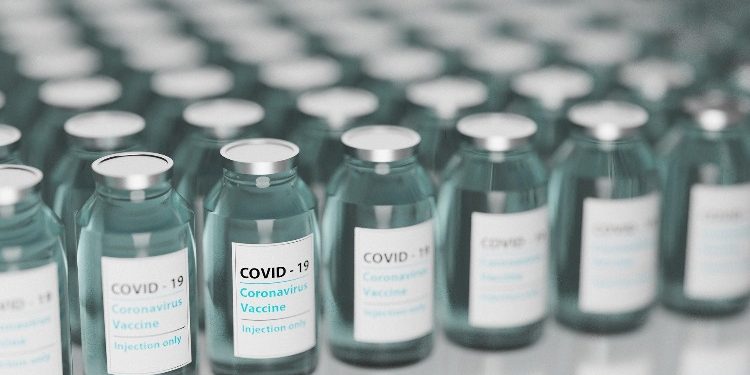Debunking COVID-19 vaccine myths have become an important topic in many parent discussions on Facebook. I’ve personally been bombarded with these vaccine scare stories over the last few months. It’s amazing how easily these vaccine-pushing groups can spread misinformation, especially when they are leaning on their “expert” opinions. The parents that fall for these viral campaigns end up losing their children and their trust in vaccination practices. In this article, I’m going to show you how to debunk some of the more common vaccine myths circulating around.
There is no strong evidence linking thimerosal (used as a preservative in vaccines) or any other form of preservative to autism. This is a highly debated area. The CDC maintains that there is no link between the two. Autism has no real connection to thimerosal or any other form of preservative. These two vaccines do not cause children to develop autism, and they are essential to protect your children from debilitating illnesses such as smallpox and measles.
Many of the people pushing these childhood vaccines are well-meaning, caring professionals who want to provide a healthy life for their children. They genuinely believe that vaccines help to protect your child’s health. However, they have been led by their pharmaceutical sales reps to believe that vaccines work. People who do not understand how these vaccines work are easily hoodwinked by slick advertising.
There are no significant health risks involved with getting any of these vaccines. In fact, the very best vaccines are the safest. In fact, some of the most successful research studies conducted have proven that vaccines save lives. All of the studies point to a remarkable benefit to getting vaccinated. In fact, children that are protected by vaccines rarely develop any of the diseases that were exposed to them before getting vaccinated.
Of course, you hear a lot of talk about the dangers of these vaccines. Some of the claims include a variety of respiratory and infectious diseases. However, those are not the only diseases that can be spread through these vaccines. One of the biggest problems is that there is currently an outbreak of Gardnerella within the United States. As you can imagine, this is proving to be quite problematic for both the pharmaceutical companies and the many parents who are concerned about this situation.
Pharmaceutical companies have spent millions of dollars on advertising and promoting their vaccines. Their goal is to make sure that they are the “perfect” vaccine. Unfortunately, they often find their way into the public consciousness through news reports and websites that are created to disseminate information. When you read debunking articles, you will find out that there is no evidence that any Gardnerella vaccine causes Gardnerella. It is a myth, which should be firmly discarded. It’s important to remember that when you learn about the risks and complications associated with Gardnerella, you should also know that there are several effective alternative remedies available.
The most common alternative medicine for Gardnerella involves the use of probiotics. If you have a history of allergic reactions to Gardnerella vaccines, you may want to consider using probiotics as an alternative treatment. These include supplements that contain “friendly bacteria”, which are actually beneficial bacteria. With these kinds of supplements, you do not have to worry about unpleasant side effects. You should also remember that most children will experience no symptoms after receiving these vaccinations, so you should not overreact if you suspect that something is going wrong.
Debunking covid-19 vaccine myths are essential in order to give parents the information that they need about Gardnerella and the various Gardnerella vaccines that are available today. Even though there are many potential complications that can arise from Gardnerella, it is simply not true that all children who receive these vaccinations develop any symptoms or illnesses. In fact, it is highly uncommon for any child to be infected with this bacteria in the slightest, so the Gardnerella vaccination is not needed. Instead, parents should focus their attention on learning about the Gardnerella control measures that they can take, as well as the preventive care they should engage in for their children. When you combine these efforts with a healthy diet, plenty of fluids, and regular sleep habits, you can ensure that your child remains as healthy as possible.






























